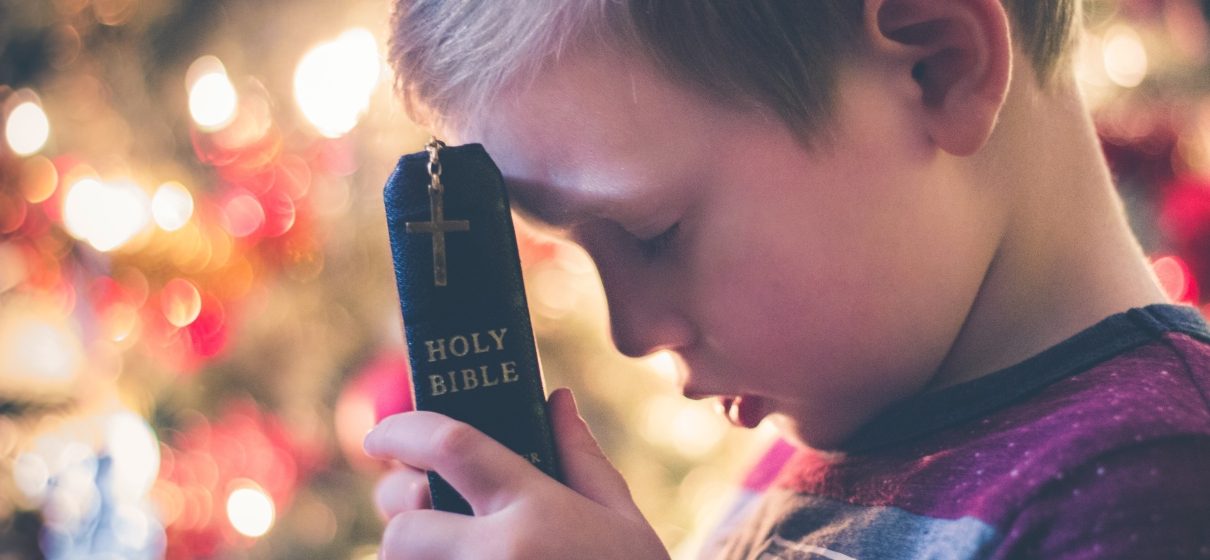Who Will Teach Your Kids to Pray?
Our older son was four and our younger son was barely three years old. My older son began his prayer as I had taught: “Dear God, thank you for today. Thank you for Jesus. Please keep us safe. Amen.”
My younger son began his prayer differently. “God. You are so big. You made everything. The trees, the sky, the bugs, the flowers, the whole world…”
As my three-year old rattled out his list of God’s creations, my older son leaned to me and whispered, “He’s just making stuff up. That’s not prayer.” I couldn’t help laughing out loud. I will never forget this even though they likely already have.
Someone taught me to pray, though I don’t remember who.
I have one vague memory of my mom praying with me as a child, but I can’t recall with clarity what we prayed for. Yet, despite my lack of memories, I am certain that my parents prayed regularly, and I would imagine they prayed with me.
After all, someone taught me to pray. Why do I not remember?
This is a topic I constantly ponder in relation to my own children. What will my children remember? Will they remember the first time they learned to pray? Will they remember all the prayers we have spoken over them and with them?
Probably not.
As much as I hate to admit it, I have no control over which memories stick with my kids. Many of our day-to-day activities and conversations have been or will be forgotten.
So, if they don’t remember these specific lessons, is it possible that the pattern of prayer we, as parents, instill will be more impactful than our children’s actual memories of praying?
Our older son is motivated by the facts and is angered by injustice. He is acutely aware of his sin and needs to be reminded of how much he is loved and forgiven by his heavenly Father.
Our younger son is wildly creative and is constantly lost in his thoughts. He is keyed into the beauty of God yet questions the truth of God.
Our daughter is highly aware of her social environment and is often intimidated by it. She prays to God but is frustrated that she can’t see or hear him speaking to her.
Our kids are distinctly different. Their prayers are too.
But, no matter their differences, we hope to teach each of our kids to trace a line back to God with prayer. Or, as C.S. Lewis put it, “to run one’s mind back up the sunbeams to the sun.” We hope that as they experience life – the ups, downs, and everything in between – they will follow the path back to the source of it all.
We teach them to just keep praying.
When our older son feels defeated and angry, we teach him to praise God’s sovereignty and pray for the Spirit to bring his calming peace.
When our younger son isn’t sure that God is who he says he is, we teach him to thank God for his unchanging nature and pray for God’s revealing truth.
When our daughter is insecure about her social surroundings, we teach her to praise God that he promises to be with us and pray for confidence.
To pray is to be with God. To pray is to be in his presence.
The gift of prayer, or the gift of being with God, that we have received through Christ is one we hope our kids will embrace.
To keep praying with them, over them, and for them is a charge to us.
We do not have to pray perfectly. Instead, our aim is to pray every day, in all situations, and in all things, and that by our example our kids will learn to do the same.
- Who Will Teach Your Kids to Pray? - November 9, 2021
- Mistakes We’ve Made and Lessons We’ve Learned as Parents - November 10, 2020

